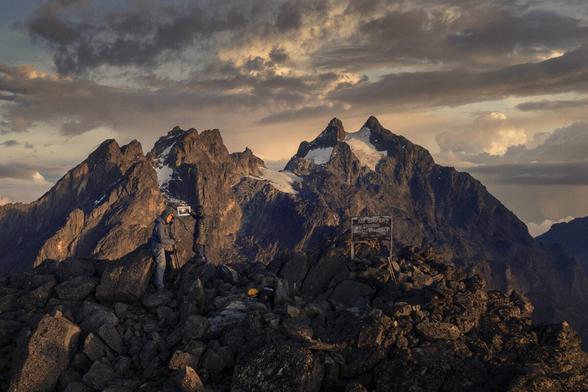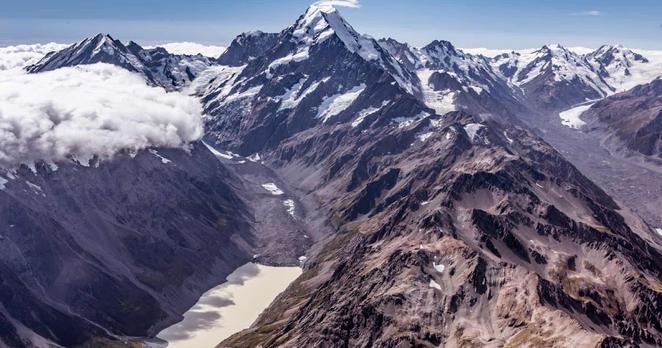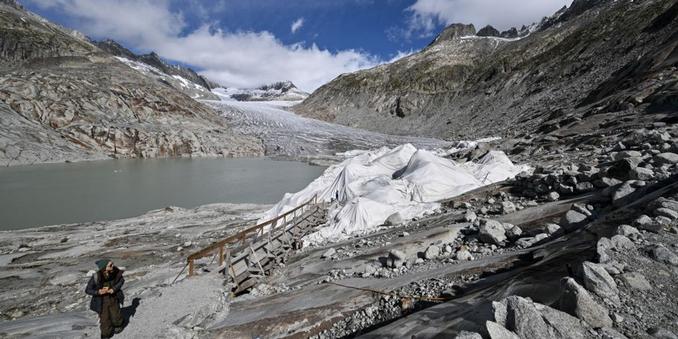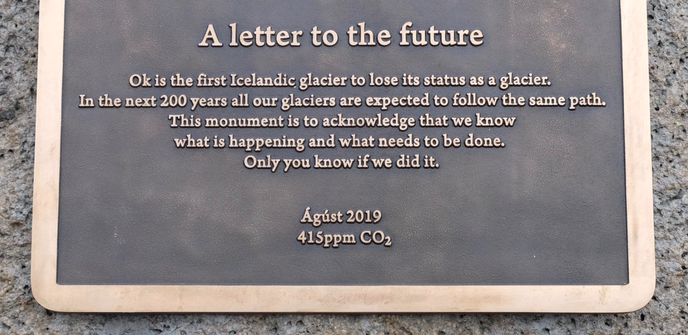Melting #glaciers caused almost 2cm of #sealevelrise this century, study reveals
Decades-long research shows world’s glaciers collectively lost 6.542tn tonnes of #ice between 2000 and 2023, causing an 18mm (0.7in) rise in global #sealevel.
Regional losses were highly variable; the Antarctic and subantarctic islands lost 2% of their volume but central Europe’s glaciers lost 39%.
36% more ice having melted between 2012 and 2023 compared with the previous decade.
https://www.theguardian.com/environment/2025/feb/19/melting-glaciers-cause-almost-2cm-of-sea-level-rise-this-century-study-reveals
#climate
Recent searches
Search options
#glaciers
Retreating Glaciers Expose 1,500 Miles of Coastline
https://e360.yale.edu/digest/climate-glaciers-coastline-study
#HackerNews #Retreating #Glaciers #Expose #1500 #Miles #of #Coastline #climate #change #glaciers #coastline #environment #science
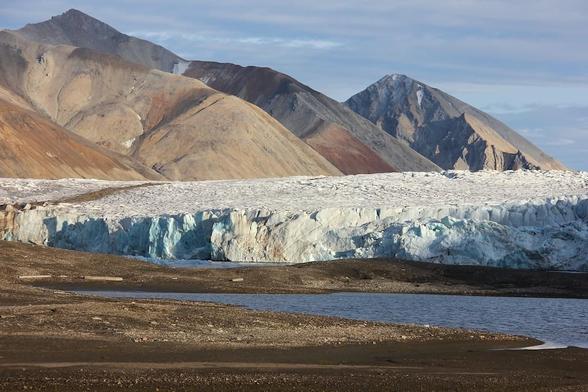
"#China’s glacier area has shrunk by 26% since 1960 due to rapid global warming, with 7,000 small #glaciers disappearing completely and glacial retreat intensifying in recent years, official data released in March showed.
The dramatic ice loss, from the Arctic to the Alps, from South America to the Tibetan Plateau, is expected to accelerate as #ClimateChange, caused by the burning of fossil fuels, pushes global temperatures higher."
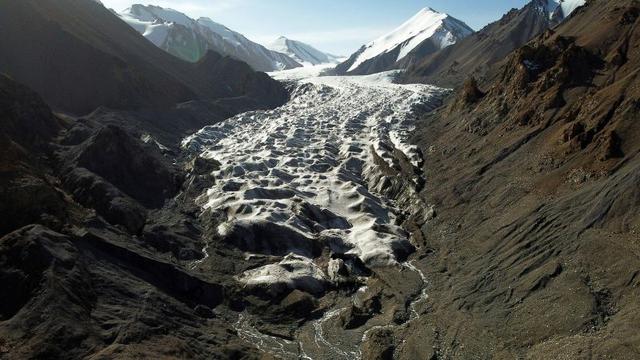
my latest feature in #CurrentBiology issue 6: With 1.5 degrees #warming and counting, #glaciers are doomed to disappear. https://proseandpassion.blogspot.com/2025/03/a-global-meltdown.html #science #ClimateCatastrophe #cryosphere #freshwater #WaterSecurity #tippingPoints #environment
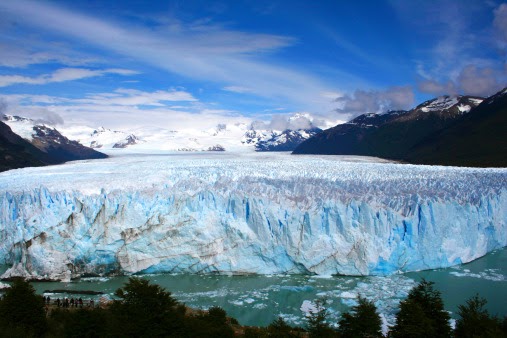
Melting #glaciers threaten #food and #watersupply for 2 billion people
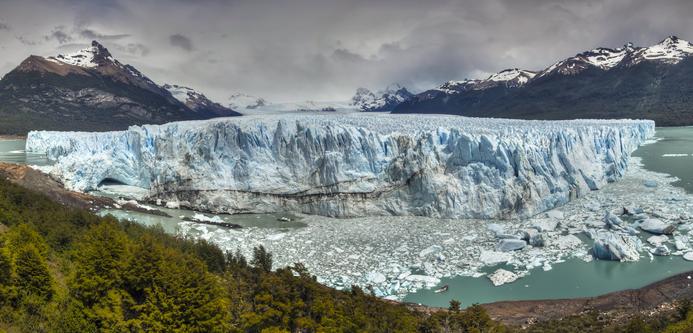
The UN has declared 2025 as the year of glacier preservation. Here's how to visit one safely. Double-edged sword: Visits to glaciers inspire people to protect the, but at what ecologic or environmental risk? https://www.bbc.com/travel/article/20250319-the-un-declared-2025-as-the-year-of-glacier-preservation-visit-one-safely #climate #climateaction #glaciers #ecology
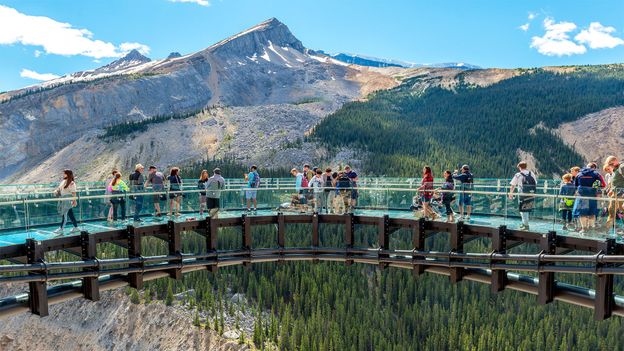
Just like oceans and rainforests, glaciers and ice sheets are teeming with life. The glacial biome is composed mainly of microorganisms, and it is visible to the human eye only during colourful algal blooms. This microscopic ecosystem contains members of all three domains of life — archaea, bacteria and eukaryotes.
1/2
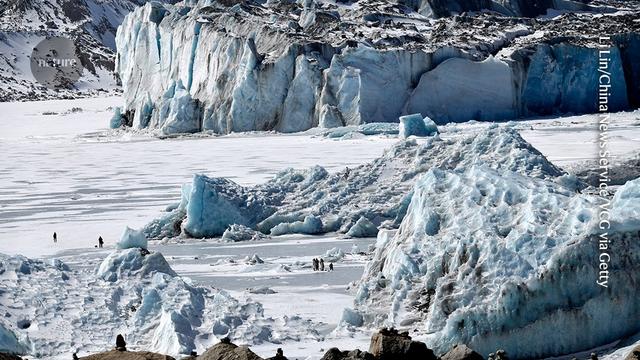
my features published in #CurrentBiology this year, issue 6: With 1.5 degrees warming and counting, #glaciers are doomed to disappear. https://proseandpassion.blogspot.com/2025/03/a-global-meltdown.html #science #ClimateCatastrophe #cryosphere #freshwater #WaterSecurity #tippingPoints #environment

Sand-sized fossils hold secrets to the history of climate change…
Between 18,000 and 11,000 years ago, the amount of #carbondioxide in the #atmosphere suddenly shot up. This caused rapid global warming, the mass melting of #glaciers, and the end of the last ice age... #climatechange #globalwarming #photosynthesis #fossils #southernocean #iceage

Ghosts of glaciers past
Gletsch, Switzerland by Fabrice Coffrini
Greenland has gained over 1600 km of new coastline as glaciers retreat.
Melting ice is revealing new coastal zones in the Arctic, but while this new landscape might fuel speculation about natural resources, it is vulnerable to rockfalls and landslides that can cause dangerous tsunamis.
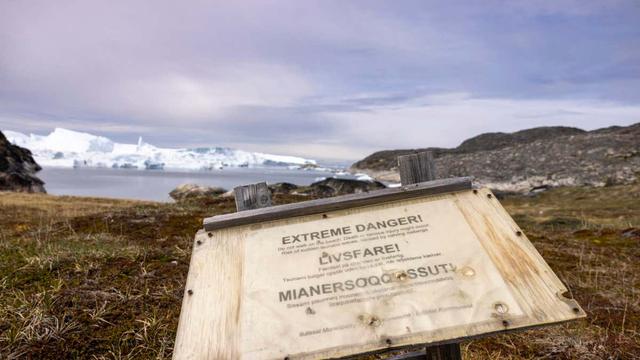
March 21 was the first World Day for #Glaciers—many of which will not survive the 21st century, new research warns> https://h2oradio.org/this-week-in-water/bursting-a-weather-forecasters-balloon
Stories from #TheAmazon, #Kenya and #Zimbabwe
#WorldWaterDay: 3 stories of #resistance and #restoration from around the globe
Kristine Sabillo, 21 Mar 2025
"More than 2 billion people around the world live without access to safe drinkable water, as rivers, #groundwater, lakes and #glaciers face continued threats of #pollution and overexploitation due to #urbanization, #EnvironmentalDestruction, and #ClimateChange .
"This World Water Day, #Mongabay looks back at some of its coverage from 2024 on how local communities are trying to protect the world’s dwindling water resources."
https://news.mongabay.com/short-article/world-water-day-3-stories-of-resistance-and-restoration-from-around-the-globe/
#WaterSecurity #WaterIsLife #RiversAreLife #OceansAreLife #Wetlands #Marshes #Rivers
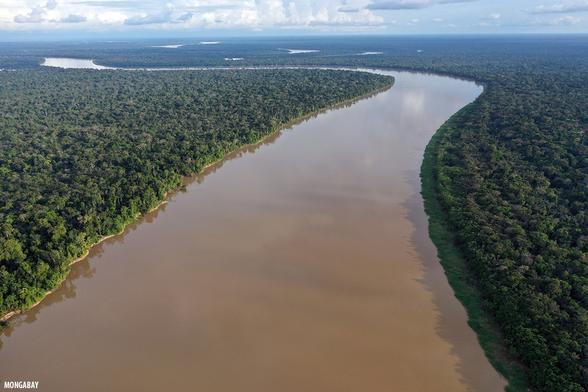
From #Himalaya to #Arctic - #GlaciersAtRisk: A Wake-Up Call on #WorldWaterDay
Story by Namrata Dadwal, March 21, 2025
"This year on World Water Day on March 22, the UN is highlighting '#GlacierPreservation'. Why? Because these frozen reservoirs that supply freshwater to nearly two billion people are disappearing at an alarming rate due to #ClimateChange.
"According to the #Copernicus Climate Change Service (#C3S), Earth's #glaciers have lost over 8,200 gigatonnes of ice since 1976, leading to #RisingSeaLevels and #WaterScarcity concerns. Nearly 6,000 gigatonnes were lost between 2000 and 2023, with the 2010s being the worst decade on record for glaciers almost the annual ice loss was more than double that of the 1980s, with an average of 370 gigatonnes of ice vanishing each year."
Read more:
https://www.msn.com/en-in/news/India/from-himalaya-to-arctic-glaciers-at-risk-a-wake-up-call-on-world-water-day/ar-AA1Bqrlg
#WaterSecurity #WaterIsLife #OceanWarming #OceansAreLife
World's glacier mass shrank again in 2024, says UN https://phys.org/news/2025-03-world-glacier-mass-shrank.html
World’s Melting Glaciers Threaten Food and Water Supply for 2 Billion People: UN Report https://www.ecowatch.com/melting-glaciers-food-water-supply-un.html
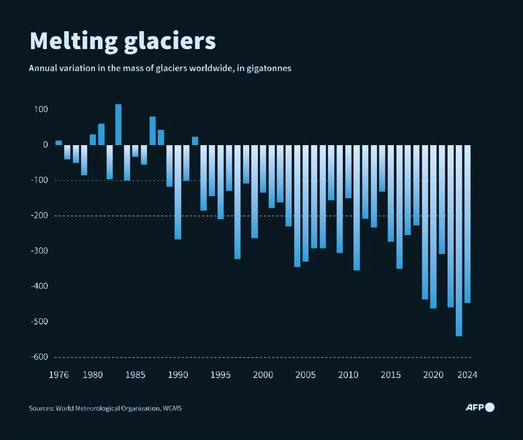
Africa’s last tropical glaciers are melting away along with local livelihoods https://news.mongabay.com/2025/03/africas-last-tropical-glaciers-are-melting-away-along-with-local-livelihoods/
